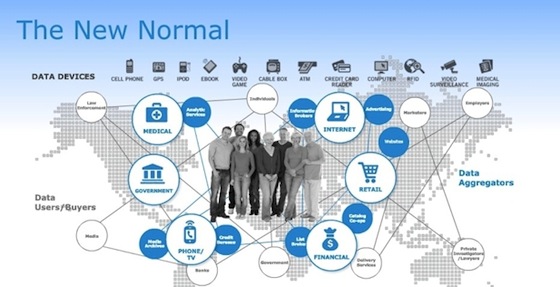With Hilary Clinton declaring yesterday and Marco Rubio declaring today, this seemed like a good time to write this post.
Interesting point made here:
- FDR mastered the radio like no President beforehand.
- JFK mastered the TV like no President beforehand.
- Obama (2008 version) mastered social media like no President beforehand.
In each case, that was a major reason why that person (a) won and (b) became a part of cultural lore, insofar as Obama is “part of cultural lore.”
You can make an argument that 2012 was the first “Big Data” election — in that Obama’s team did it pretty well, Romney’s team barely did it at all, and we saw the outcomes — but 2016 might be the first true Big Data election in terms of both sides breathlessly chopping up data and concepts, especially in Ohio, Florida, and any emergent swing states. Modern politics seems to be headed this way.
Here’s a quote from Forbes:
“What’s more,” Mingarelli adds, “if we could better understand the reality of what’s happening with youth at the grassroots level, by the data they’re creating on a daily basis, it could make it a lot easier for governments, political parties and key stakeholders to create authentic, evidence-based campaigns — rooted in the actual needs of young people in Canada — that have real, actionable value.” I like the way this woman thinks.
So you have a world where, for years, what mattered to politics was (a) big money and (b) spin guys. Now you have a world where big money still matters — and potentially even more — but “swing guys” could yield to “data scientists.”
Of course, there are still problems with this conceptual idea. “Big Data” is always going to have a formidable foe in “human intuition,” and I’m sure that’s even more drastic in political circles (lots of egos). Plus, a lot of people who hire “data guys” don’t understand the difference between “synthesizers” of information and “analyzers” of information. They’re actually drastically different, and if you hire the wrong types of people, your data messaging might not be understood at a wide-angle view. You know what happens when people don’t understand a concept? They ignore it. You know what happens when you ignore data? You lose an election.
Here’s the thing, though: if this election comes down to a Clinton vs. a Bush (arguably the biggest family names on each side of the aisle), is this election really going to be about data and targeting and analysis? Or is it just going to be about name value and money? Probably the latter, right? And wouldn’t that say a lot about America, eh?
